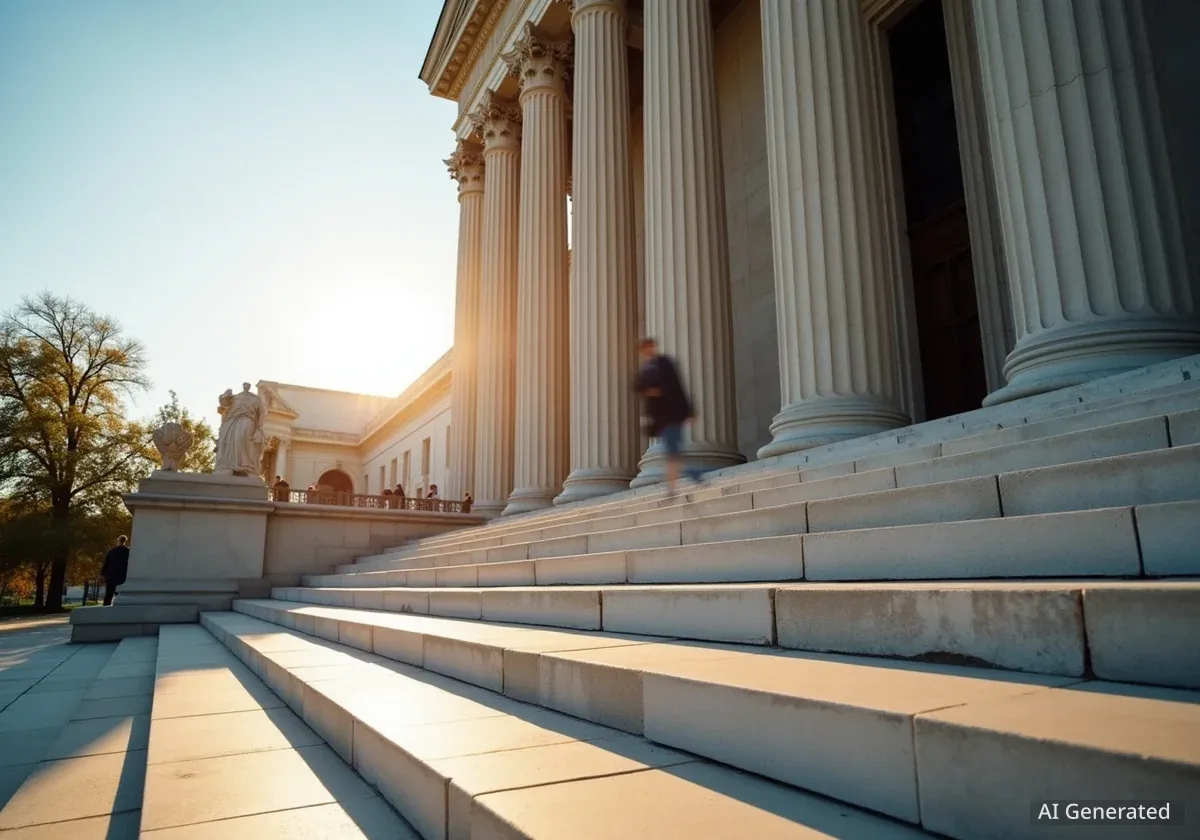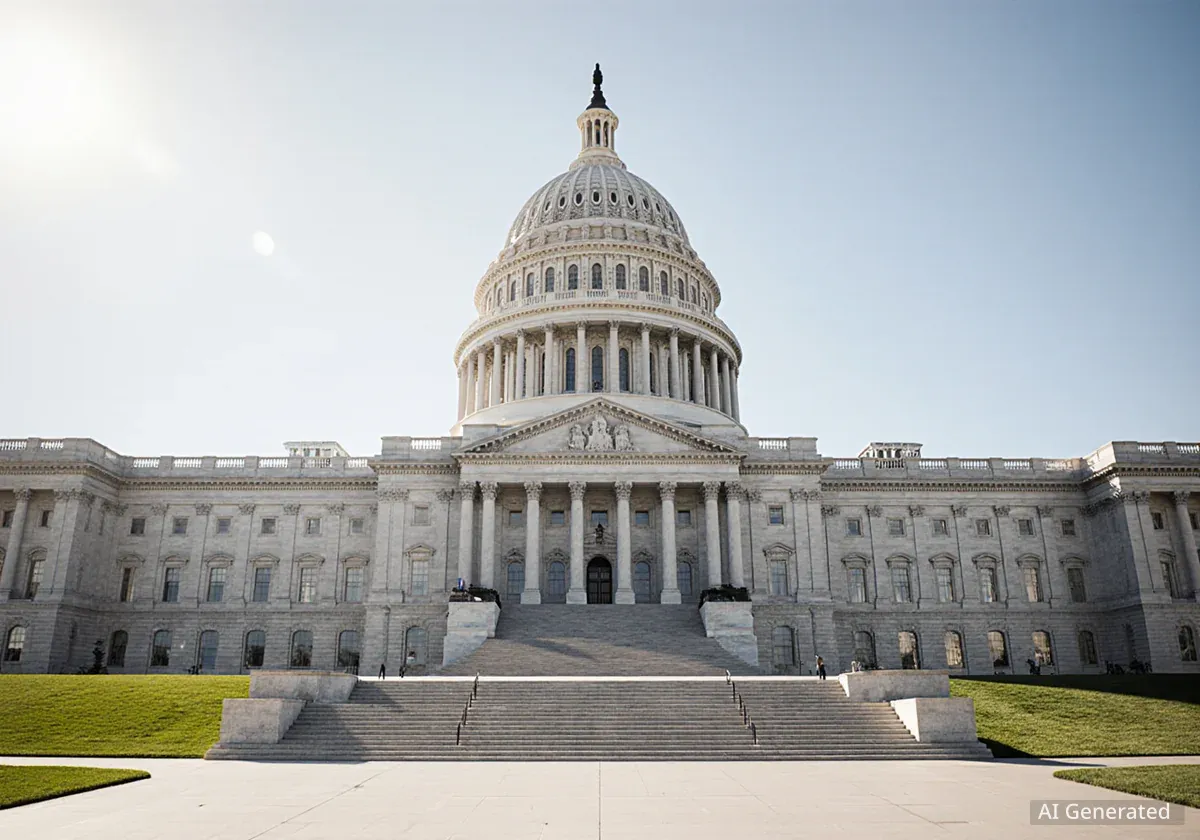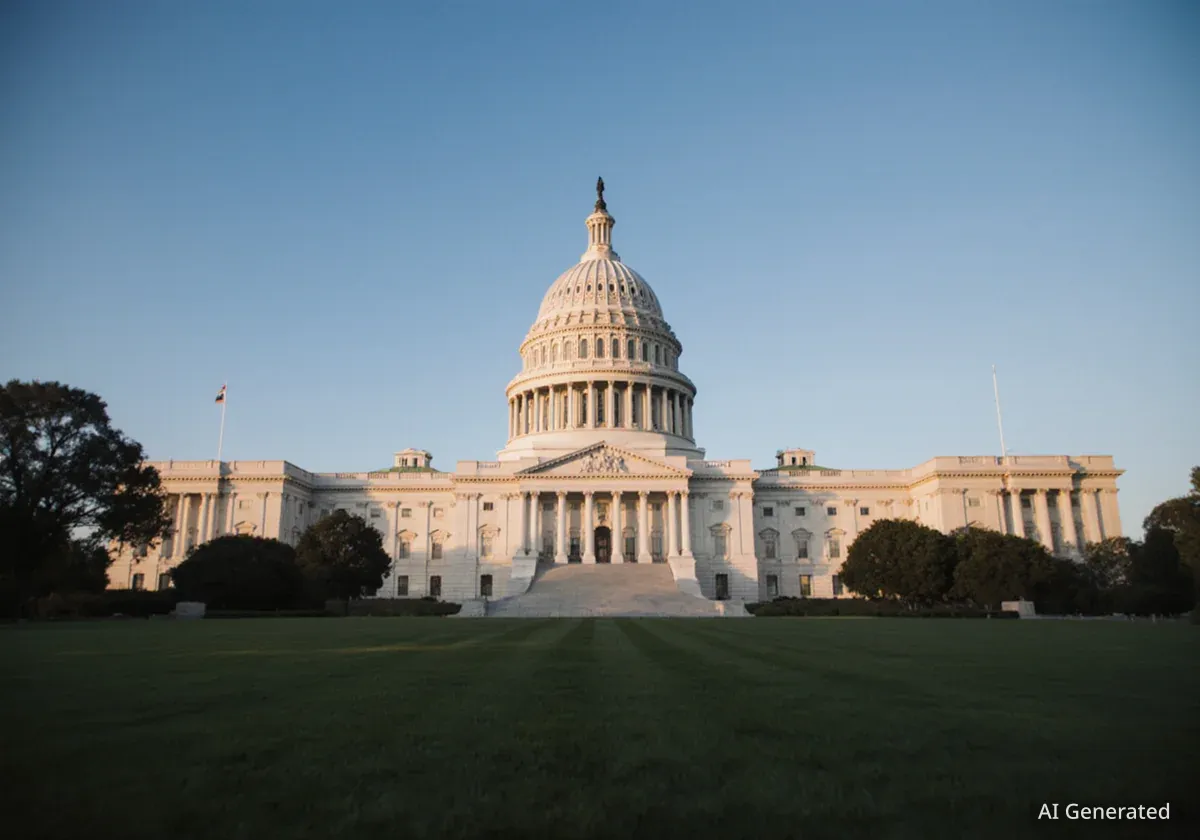Local governments in Richmond and Henrico County are set to make significant decisions this week on topics ranging from real estate tax rates to major public utility upgrades. The Richmond City Council will vote on the city's property tax rate, while the Henrico Board of Supervisors will consider a multi-million dollar water infrastructure project and the purchase of historic canal land.
Key Takeaways
- Richmond City Council will vote on the 2026 real estate tax rate, with a debate between keeping it at $1.20 or lowering it to $1.16 per $100 of assessed value.
- Henrico County Board of Supervisors is expected to approve the East End Water Transmission Main Project, a major infrastructure upgrade.
- Funding for Henrico's utility projects may come from up to $125 million in revenue bonds, which is also on the agenda for a vote.
- Richmond committees will also discuss public safety in Shockoe Bottom, government transparency measures, and opioid settlement funds.
Richmond City Council Faces Key Financial and Development Votes
The Richmond City Council has a full agenda for its Monday meeting, with the most anticipated item being the final vote on the real estate tax rate for the upcoming fiscal year. The decision directly impacts the budgets of homeowners across the city.
The Real Estate Tax Rate Debate
A central point of discussion is a proposal by Councilor Reva Trammell to lower the tax rate. Supported by two other councilors, the proposal seeks to reduce the rate from its current $1.20 to $1.16 per $100 of assessed property value. This move aims to provide tax relief to residents facing rising property assessments.
However, Mayor Danny Avula and Council President Cynthia Newbille advocate for maintaining the rate at $1.20. Proponents of keeping the current rate argue it is necessary to fund essential city services and ongoing projects. The outcome of this vote will have direct financial consequences for property owners and the city's overall budget.
By the Numbers: Tax Rate Impact
For a home assessed at $350,000, the difference between the two proposed rates is significant. At the current $1.20 rate, the annual tax bill is $4,200. If lowered to $1.16, the bill would be $4,060, representing a savings of $140 per year for the homeowner.
Proposals on Government Transparency and Development
In addition to the tax rate, the council will consider several other important ordinances. One proposal would mandate that the mayor's annual budget be published with a side-by-side comparison of spending requests from city agencies, a measure intended to increase transparency.
Development is also on the agenda. Councilors will review an appeal to overturn a decision by the Commission of Architectural Review. The commission previously denied an application for a three-story, single-family home at the corner of Venable and North 22nd streets, and the council will now make the final call.
The consent agenda, which typically includes less controversial items, contains several notable proposals:
- Acceptance of $4.3 million from the Virginia Department of Transportation for the Fall Line Trail project.
- Transferring the deed for Abner Clay Park from the Richmond School Board to the city.
- Authorizing the city's participation in opioid settlements against companies like Purdue Pharma.
- A special-use permit for a new apartment complex on Snead Road, planned to include up to 180 units and a clubhouse.
Henrico County to Vote on Major Water Infrastructure
The Henrico County Board of Supervisors will hold both a special and a regular meeting on Tuesday, with major infrastructure and utility projects at the forefront. The decisions made could shape the county's public services for years to come.
What Are Revenue Bonds?
Revenue bonds are a form of municipal financing used for projects that generate income, such as water and sewer systems. Unlike general obligation bonds, they are not backed by the government's taxing power. Instead, they are repaid using the revenue generated by the specific project they fund, such as fees paid by utility customers.
East End Water Transmission Main Project
A primary item for the board's regular meeting is a vote to initiate the East End Water Transmission Main Project. According to county documents, the project's goal is to "make reliable and redundant public drinking water" available to all residents. This is particularly crucial for the eastern part of the county.
The project involves installing approximately 13 miles of large, 42-inch pipe. This new main will significantly upgrade the transmission capacity from the county's water treatment plant in the west to communities in the east. The board's vote would authorize staff to begin seeking contracts for the project's design phase.
Funding and Land Acquisition
To finance this and other utility projects, the board will also vote on issuing up to $125 million in revenue bonds from the county's water and sewer system. This substantial investment highlights the scale of the planned upgrades to Henrico's public utilities.
In a related matter, the board will consider purchasing a five-mile stretch of the historic Kanawha Canal from CSX transportation. The 65-acre parcel would be acquired for a nominal fee of $1. The county plans to use the land for recreation and utility improvements, creating new public amenities while securing space for infrastructure.
Committee Meetings to Address Public Safety and Operations
Beyond the main council and board meetings, several standing committees in Richmond will convene to address specific areas of city governance. These meetings provide a forum for detailed discussion before proposals reach the full City Council.
Public Safety in Shockoe Bottom
On Tuesday, the Public Safety Standing Committee will hear from Richmond Police Chief Rick Edwards. The chief is scheduled to provide an update on law enforcement's response to concerns about shootings and other criminal activity in the Shockoe Bottom neighborhood. A general overview of recent crime statistics will also be presented.
Governmental Operations and Transparency
The Governmental Operations Standing Committee meets on Wednesday to review annual updates from the City Auditor and the Inspector General. The Department of Public Works will also present on its operations and maintenance activities.
The committee will consider three proposals aimed at increasing government transparency, which would later require full council approval:
- Enhanced Financial Disclosures: Requiring more detailed financial disclosures from members of boards and commissions that can issue bonds or spend more than $10,000 annually.
- Online FOIA Library: Creating a publicly accessible online library for Freedom of Information Act requests and responses.
- Open Data for Contracts: Requiring key details from city contracts, such as dollar amounts, to be posted on the city's open data portal and banning fees for accessing this public information.
These meetings in Richmond and Henrico represent crucial steps in local governance, with decisions that will directly affect residents' taxes, public safety, utility services, and access to government information.





